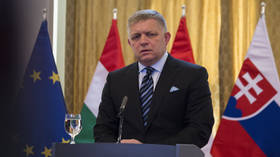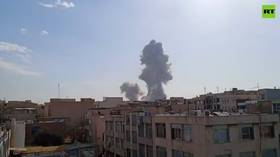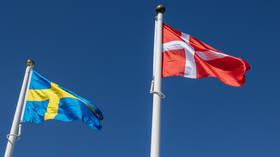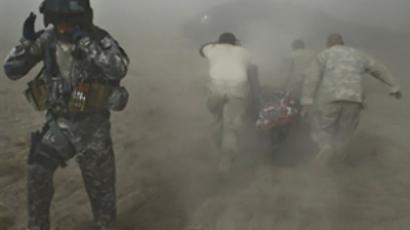NATO denies plans to run special-ops in Pakistan
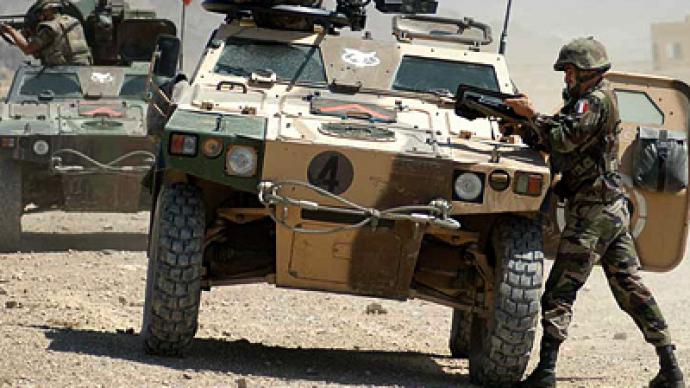
The US-led coalition in Afghanistan has denied reports that it is pushing to extend its special operations into neighboring Pakistan.
The New York Times quoted unnamed American officials as saying that special forces should start targeting militants across the border, where they often seek shelter.The US uses unmanned drones to strike at suspected insurgents in Pakistan. Civilians are known to die in such attacks, which Islamabad has called a violation of the country's sovereignty.Jason Ditz, a news editor for antiwar.com, said the possibility of having foreign troops on the ground inside Pakistan has a different “psychological” undertone that the overhead drones do not. However, Ditz suggested that, contrary to its public denouncement of the drones, the Pakistani government condones their use.“Officially, of course, the Pakistani government has always denied supporting the drones,” Ditz said. “But it has been indicated a number of times among US officials that privately they have not only accepted them but embraced them.”It would come as no surprise if US forces were already on the ground in Pakistan, says Michael Marceau, vice president of the Washington chapter of Veterans for Peace.“We’re flashing back to the late 1960s with the situation in Vietnam, when our government and our military said we have to go into the Cambodian areas where the sanctuaries are, where the training facilities are, and eliminate those to make it safe for the US military,” he said. “It just seems like the US does not learn their lessons, and these things just seem to escalate,” he added. “We go into situations very easily and find ourselves stuck there with no way out.”
Veterans for Peace president Mike Ferner says that the situation is extremely serious and it reminds him of President Nixon’s era.“If these reports are actually true, it’s very disturbing. We’ve heard bits and pieces of reports earlier suggesting that special forces operations may have been going on in Pakistan but this is the first time a media outlet like the New York Times has said so,” Mike Ferner says. “And this is extremely serious. I hope the American public sees it as that. And we should remember that when Richard Nixon was president, he secretly invaded and bombed Cambodia without any knowledge on the part of the Congress and that was one of the charges brought up to impeach him. That was extremely serious then and it’s exactly the same situation now – secret bombings with drones and a secret invasion.”
A retired US Army colonel Ann Wright says it is dangerous for America to be getting into Pakistan and that with Pakistan being a nuclear state, the security of nuclear facilities is of great concern.“The reports that the US special forces are actually operating in covert missions in Pakistan are very, very worrisome,” she says. “This latest New York Times article is kind of confirming what was known and it is a very dangerous situation for the US to be getting into.”
Kathy Kelly, coordinator of Voices for Creative Non-Violence, says if US special operations in Pakistan do take place, the country’s government is unlikely to withstand the anger of its people.“Even now, the effect of the horrific floods that left one fifth of Pakistan under water is still having a terrible impact on the people of Pakistan and the Pakistani government can’t continue to ignore the cries and the pleas of its own people. They’ve already been bullied by the World Bank measures, by IMF measures,” Kelly says. “Pakistan is a country where every single day you can see hunger strikes and demonstrations, and people taking terrific risks to say to their government – this can’t continue, we want relief from the suffering.”“And if the US is then giving the green light to enter Pakistan with night raids and death squads and assassinations by joint special operations forces – it’s hard to imagine that the Pakistani government could withstand the outrage that can be predicted on the part of the Pakistani public.”



